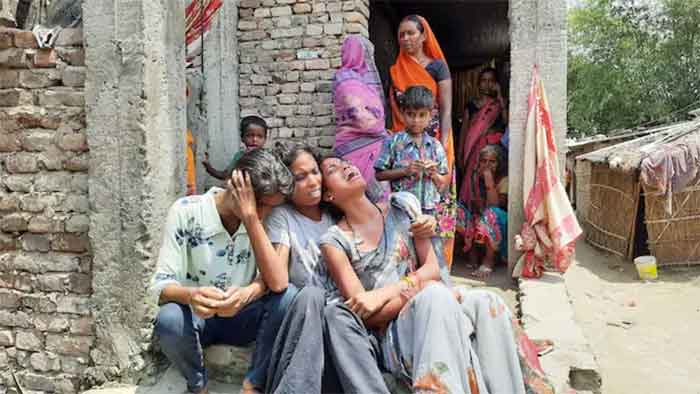
When India closed its alcohol outlets during the recent pandemic-driven lockdown, many western countries such as Canada did not take a similar step on liquor sales. Alcohol was easily available in these countries just like any other grocery item in the market. Why did India’s state governments decide to stop the sale of liquor while it continued selling all other bottled items in the market? One of the reasons could be to avoid overcrowding at the alcohol outlets to contain the spread of the virus. But a major reason could be considering alcohol as an unnecessary commodity and a vice as drinkers were generally seen as a social nuisance.
People who enjoy alcohol do so due to its perceived social and psychological benefits. To some, a drink before a meal improves digestion and for others, it offers a soothing respite at the end of a stressful day. An occasional drink with friends can be a socializing agent during gatherings. Such physical and social effects may contribute to the overall health and well-being of society. However, people in India widely perceive drinking alcohol as an immoral practice while it is being widely sold and used. Alcohol is usually hidden from public view in most homes. All discussions on liquor are avoided at home while people drink it secretly either alone or in private groups.
In the West, offering wine, beer or any other drink is as casual and natural as a host offering tea or coffee in India. It is being sold at shops and restaurants which have a good ambiance, by staff who are welcoming and kind to buyers. But liquor in India is being sold in pathetic, crowded, and disrespectful surroundings. Alcohol buyers are often abused by the staff in the outlets. Those who drink alcohol are hated and despised at every stage. People in India justify such unnatural restrictions to liquor consumption, saying ‘we are not west, and we don’t permit westernization’. Should we continue to follow this hypocritic approach to alcohol? Do people who drink alcohol deserve more respect and kindness?
Alcohol as seen by religions in History
Alcohol was produced and used in India since the Neolithic period and since then there were different positions on the wisdom of letting people freely use alcohol. Religions have generally prescribed contradicting advice on alcohol use though all of them have consensus on discouraging over-indulgence, leading to drunkenness.
To Islam “intoxicants and games of chance” are “abominations of Satan’s handiwork,” intended to turn people away from God and forget about prayer, and therefore Muslims are instructed to avoid alcohol in any form, even in cooking. Thus, Islam is very clear on not letting its followers use alcohol.
Christian priests drink wine during Mass and offer a little of it to the community who gathered. However, many orthodox and Pentecostal groups are up against alcohol consumption, even in moderation.
India’s ancient texts called ‘Sutras’ prescribe caste-wise rules for using alcohol during celebrations and while honoring guests. Ancient Indian scriptures have several references to gods, goddesses, kings, and queens enjoying their drinks. Hindu Tantric groups use alcohol in rituals. Aghori yogis offer alcohol to the deity. They also consume it during rituals.
Alcohol in India has religious sanctions through products such as ‘soma’ extracted from plants and it was a respectful drink used for Vedic rituals. Ancient Indian Vedic texts (especially Ayurveda) discuss the benefits of herbal wines called ‘Asavas’ and ‘Arishtas’ in detail. These herbal wines were regarded as the best medicines for weak digestion, poor blood circulation, and mental stress. While Ayurveda recognizes the health benefits of alcohol, it insists that it should only be taken in moderation.
Hinduism in general lets its followers apply discretion and moderation while consuming alcohol and it mostly stayed off from prescribing absolute dos and don’ts about alcohol use, though holy books of Hinduism such as the Narada Purana, Bhagavata Purana, and Skanda Purana forbid the consumption of alcohol. Bhagwat Geeta forbids the use of things that impairs judgment and creates ‘tam bhava’. Ancient Hindu law book Manu Smriti also considered the use of alcohol as a crime.
Approach to Alcohol in Modern India
Part of the anti-alcohol sentiments in modern India come from India’s independence struggle during which people developed a detestation against everything western including foreign liquor. Gandhiji, who is considered the father of the nation strongly advocated a boycott of alcohol for both moral as well as political reasons. Thanks to such campaigns by popular political leaders, the consumption of alcohol were considered a social evil at the time of Independence and hence the constitution of India (in Article 47 in the Directive Principles of State Policy) stated that the state shall endeavor to bring about prohibition and restrict the use of alcohol only for medicinal purposes.
Subsequently, prohibition of alcohol use was encouraged in India, and states were given full control of alcohol-related legislation. There were sporadic attempts to prohibit the use of alcohol. One-fourth of India’s population was under prohibition by 1954. Independent India retained alcohol prohibition until the mid-1960s and by the 1970s, only the state of Gujarat had a complete alcohol prohibition policy. Some states (like Bihar, Nagaland, and Mizoram) have partial prohibition in place and a few more are contemplating prohibition orders in their states. Many states which have already implemented prohibition reverted the order mainly because it was very difficult to effectively implement the order.
Prohibition led to a huge loss of state revenues. The potential loss in state revenue due to the loss of excise revenue from the sale of alcohol discouraged most state governments from enforcing long-term prohibition. Consequently, there were no serious efforts in most parts of India to impose a total ban on alcohol due to its inherent potential for easy revenue generation.
Perceived impact of alcohol consumption on individuals, families, and society
Those who drink alcohol are perceived to indulge in domestic violence (both physical and emotional) with their family members. As per data, domestic violence after alcohol consumption is substantial. A third of violent husbands drink and most of the violence takes place during intoxication, according to another WHO study.
Drinkers may exhaust the savings of their families, which can negatively affect the education of their children. Impoverishment through borrowing and selling off assets in distress because of hospitalization is also reported. Alcohol-dependent persons spent more money than they earned, and many were forced to take loans to spend for their expenses related to alcohol consumption.
Drunken driving often results in gradual and progressive loss of driving ability because of an increase in reaction time, overconfidence, degraded muscle coordination, impaired concentration, and decreased auditory and visual acuity. Several road traffic accidents occur due to driving vehicles under the influence of alcohol.
There are many social scientists who argue that the social cost of alcohol far exceeds the economic benefits. To them, over the years, unrestricted and abusive consumption of alcohol has precipitated a huge social burden in terms of medical and psychological treatment and rehabilitation of the alcohol-addicts in various stages of dependency. Many emerging health problems such as liver Cirrhosis and cardiac-related problems have a history of alcohol abuse. Several crimes such as sexual/physical assault, rape, exploitation of women in commercial sex work, and homicide are committed after alcohol consumption.
Deconstructing the perceived impact of alcohol consumption and regulation
Alcohol’s potential to affect the user’s ability to perceive, integrate and process information is well accepted. The association between alcohol use by men and the consequent increased risk of violence against women, especially against their intimate partners has also been accepted. However, the position of some of the activists that alcohol is the sole cause of ‘torture’, ‘abuse’, and ‘beating’ of women by men needs to be further examined.
It may be noted that alcohol use interacts with personality and enhance the risk of the perpetration of violence among men who are already predisposed to engaging in coercive behavior, including sexual aggression. Though there is evidence of some association between violence against women and alcohol consumption by men, it should not be seen as the root cause of violence against women. While an abuser’s use of alcohol may have an effect on the severity of the abuse or the ease with which the abuser can justify his actions, an abuser does not become violent ‘because’ drinking causes him to lose control of his temper. One should also see a wife beater’s intent to gain control over their partner’s actions, thoughts, and feelings.
The exercise of male violence, through which women’s subordinate roles and unequal power are enforced and maintained, is, in turn, tolerated and reinforced by our political and cultural institutions and economic arrangements. There is a paucity of data that establishes a direct link showing alcohol use as a cause of men’s violent actions. Above all, we cannot attribute the use of alcohol as the main reason behind violence and abdicate men’s personal responsibility for violent behavior towards women! Thus alcohol-wife-beating relationship is a myth. This association is used as an excuse by perpetrators for becoming violent and allows them to justify their abusive behavior. Domestic violence and alcohol abuse should be understood and treated as independent problems.
Similarly, though there is a link between alcohol and various social vices, all the problems attributed to alcohol are not the fault of alcohol. Alcohol itself is not the reason for all the alleged social and economic consequences of its use. If we blame alcohol for all the actions its users commit, its logic is faulty as we blame a gun for a murder committed by its user.
Attempts at prohibition have never been fully successful in India. Prohibition led to the creation of networks of smugglers and home brewers who encouraged people to drink even more than when alcohol was legal. In the absence of well-defined regulations, the complete cooperation of the enforcing authorities, speedy disposal of cases, stringent action against offenders, and a fool-proof control system to prevent smuggling and the emergence of illicit liquor, prohibition has failed in many states. Even during the recent lockdown years, alcohol was easily available in many states.
Critics claim that prohibition led to nothing but an increase in organized crimes, illicit distillation, deaths from spurious liquor, and widespread defiance of the law. Some sociologists believe that since alcohol was made illegal, people drank more to rebel against a system that sought to control their lives and choices. Currently, prohibition is fully or partially implemented only in Gujarat, Bihar, Nagaland, and Manipur states.
Do we need a paradigm shift in alcohol policy?
Is India among the nations which consume a lot of alcohol? As per official data (quoted in a recent paper in Lancet), Indians are among the world’s lowest consumers of alcohol as the official government statistics show only 21% of adult men and around 2% of women drink. Further, countries that have a consumption rate of alcohol higher than India are not countries that have high rates of crimes including domestic violence.
There is no evidence to suggest that if we despise and hate people who use alcohol or sell it in the disrespectful surrounding, it will reduce the consumption of alcohol or address all the vices attributed to alcohol consumption. There is also no evidence to suggest that if we sell alcohol in respectful surroundings with kindness and love to those who buy it, it will promote drinking. Rather such an approach might boost the self-esteem of alcohol users and they will, in turn, start treating others including their partners with love and kindness.
What India needs is the ‘promotion of responsible drinking. Prescribing what to eat and drink, based on moral positions is perhaps the job of religions and states may not encroach into their domain. Responsible drinking means taking steps such as limiting the number of drinks (quantity as well as frequency), not driving after drinking (through having a designated driver, riding with someone in the group who has not been drinking or taking a taxi or bus), and so on. Community in general and alcohol users, in particular, should be oriented and trained by community-based organizations and local self-government not only on moderate and restricted use of alcohol but also on matters around domestic violence and gender in general.
(Kandathil Sebastian is a Social Scientist based in Delhi)













































